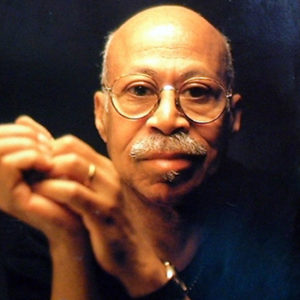
Tommy Flanagan
*Tommy Flanagan was born on this date in 1930. He was a Black jazz pianist and composer.
Thomas Lee Flanagan was born in Conant Gardens, Detroit, Michigan. He was the youngest of six children, five boys and a girl. His parents were both originally from Georgia. His father, Johnson Sr, was a postman, and his mother, Ida Mae, worked in the garment industry.
At age six, Flanagan's parents gave him a clarinet for Christmas. He learned to read music by playing the clarinet, but within a few years, he preferred the piano. The family had a piano in the house, and Flanagan received lessons from one of his brothers, Johnson and Gladys Wade Dillard, who also taught Kirk Lightsey and Barry Harris. Flanagan graduated from Northern High School.
Flanagan's early influences included Art Tatum, Teddy Wilson, and Nat King Cole, whom he heard on the radio and playing in the Detroit area. Flanagan's first concert was around 1945, with trombonist Frank Rosolino. Flanagan was only around 15 years old then, so he could not stay in the club's bar area; between sets, he went to another room and did homework. As a teenager, he played in a band led by Lucky Thompson that contained Pepper Adams and Kenny Burrell. Still in his teens, Flanagan also sat in on piano for some appearances by Charlie Parker in Detroit. In 1949, Flanagan had his first residence at the Blue Bird Inn in Detroit. In 1950, he played with Rudy Rutherford until the clarinetist returned to the Count Basie band. Flanagan then played jazz, rhythm, and blues with saxophonist George Benson in Toledo before being drafted into the army in 1951. After basic training, Flanagan auditioned as a pianist for an army show. He got the role, and approximately a year later, he was sent to Kunsan during the Korean War. There, he worked as a motion-picture-projector operator. After two years of service, he was discharged and returned to Detroit, where he soon became a pianist, again working with Burrell, Donald Byrd, and Yusef Lateef, among others.
Within months of moving to New York in 1956, he had recorded with Miles Davis and on Sonny Rollins' landmark Saxophone Colossus. Recordings under various leaders, including Giant Steps of John Coltrane and The Incredible Jazz Guitar of Wes Montgomery, continued well into 1962 when he became vocalist Ella Fitzgerald's full-time accompanist. He worked with Fitzgerald for three years until 1965, and in 1968, returned to be her pianist and musical director, this time for a decade.
After leaving Fitzgerald in 1978, Flanagan attracted praise for the elegance of his playing, principally in trio settings when under his leadership. These, however, were played in an earlier style, and the young Flanagan and his friends were more interested in the newer bebop, including that played by pianist Bud Powell, who strongly affected Flanagan's musical thinking and improvising.
During his career, Flanagan was nominated for five Grammy Awards. The first occasion was in 1983: The Magnificent Tommy Flanagan for Best Jazz Instrumental Performance, Soloist, and Giant Steps for Best Jazz Instrumental Performance, Group. Two years later, Thelonica was nominated for Best Jazz Instrumental Performance, Soloist. The next nomination was in 1998 for Best Jazz Instrumental Solo for his solo on "Dear Old Stockholm" from Sea Changes. The last, in 2003, was in the same category, for Flanagan's solo on "Sunset & the Mockingbird" from A Great Night in Harlem. Flanagan first married Ann in 1960. The couple had a son and two daughters and divorced in the early 1970s; Ann was killed in a car accident in 1980. Flanagan's mother died in 1959, and his father died in 1977. Flanagan married Diana, his second wife, in 1976.
Tommy Flanagan died on November 16, 2001. He was survived by Diana, the three children from his first marriage, and six grandchildren. Flanagan was usually self-effacing, reserved, and amiable. His second wife summarized his personality: "His gentleness and quietness are deceptive. He is a strong man, and he has a lot of spirit and firmness."
In his 45-year recording career, he recorded more than three dozen albums under his name and over 200 as a sideman. By his death, he was one of the most widely admired jazz pianists and influenced his contemporaries and later generations of players. Although he acknowledged the influence of other pianists, Flanagan stated, "I like to play like a horn player, like I'm blowing into the piano. The sound of a piece – its overall tonality – concerns me." In concerts, Flanagan typically played a range of composers' works. Once established as a small-group leader, he often played songs by Tadd Dameron, Duke Ellington, Benny Golson, Thad Jones, Tom McIntosh, and Thelonious Monk.
Kenny Barron described Flanagan as his "hero" and stated that he admired the older man's touch and phrasing from when he first heard it at junior high school: "He became an influence and continued to be an influence till the day he died – and he still is."